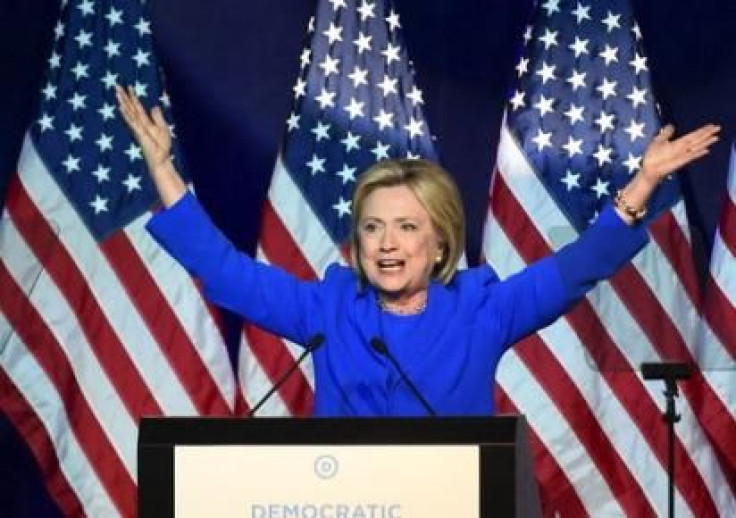Clinton Proposes $7.5 Billion U.S. Fund To Fight Addiction

WASHINGTON (Reuters) - Democratic presidential candidate Hillary Clinton would launch a $10 billion initiative to tackle drug and alcohol addiction, a problem she speaks of often on the campaign trail and which affects 23 million Americans.
Clinton’s plan would include a new $7.5 billion federal fund to support states that launch addiction-related prevention, treatment, medical response, prescription and criminal justice initiatives.
Clinton, the Democratic front-runner, announced her plan in the Manchester Union Leader, a New Hampshire newspaper. She said at her first campaign stop in the state, a retired doctor told her the biggest problem facing the country was drug addiction.
“To be candid, I didn’t expect what came next,” Clinton wrote in the piece posted late on Tuesday. “In state after state, this issue came up again and again – from so many people, from all walks of life, in small downs and big cities.”
Substance abuse has become an early, surprising theme in Clinton’s campaign, prompting personal stories at panels in New Hampshire and house parties in Iowa, the two states that hold the earliest party nominating contests.
“You look at me as a regular person, but I served 11 years in prison,” said Carl Babbitt at an August roundtable in Keene, New Hampshire, detailing how he was abused in foster care and turned to drugs and alcohol.
“I tried to get into recovery,” Babbitt continued, but “as soon as they found out I had no insurance, bye. I went back to doing cocaine.”
Babbitt killed a man during an alcohol- and drug-fueled fight. He now runs a prison ministry.
At an Iowa event last week, U.S. Agriculture Secretary Tom Vilsack stood in front of a barn as the sun set and told the crowd there to see Clinton that he wanted to get “very personal” about why he endorsed her. Vilsack said his mother abused prescription drugs and walked out when he was young.
“What struck me was how impacted she was by the stories she heard,” Vilsack said of Clinton.
Clinton’s vision, as outlined by her campaign, would emphasize better training for healthcare workers to recognize substance abuse, and having all first responders carry naloxone, a drug that can reverse the effects of an opioid overdose.
Clinton would direct the attorney general to issue new guidance related to nonviolent drug offenders that emphasizes treatment over incarceration, generating savings that could be used to partially fund the $10 billion initiative, her campaign said.
(Reporting by Amanda Becker in Washington; additional reporting by Mohammad Zargham in Washington; Editing by Will Dunham and Jonathan Oatis)



























